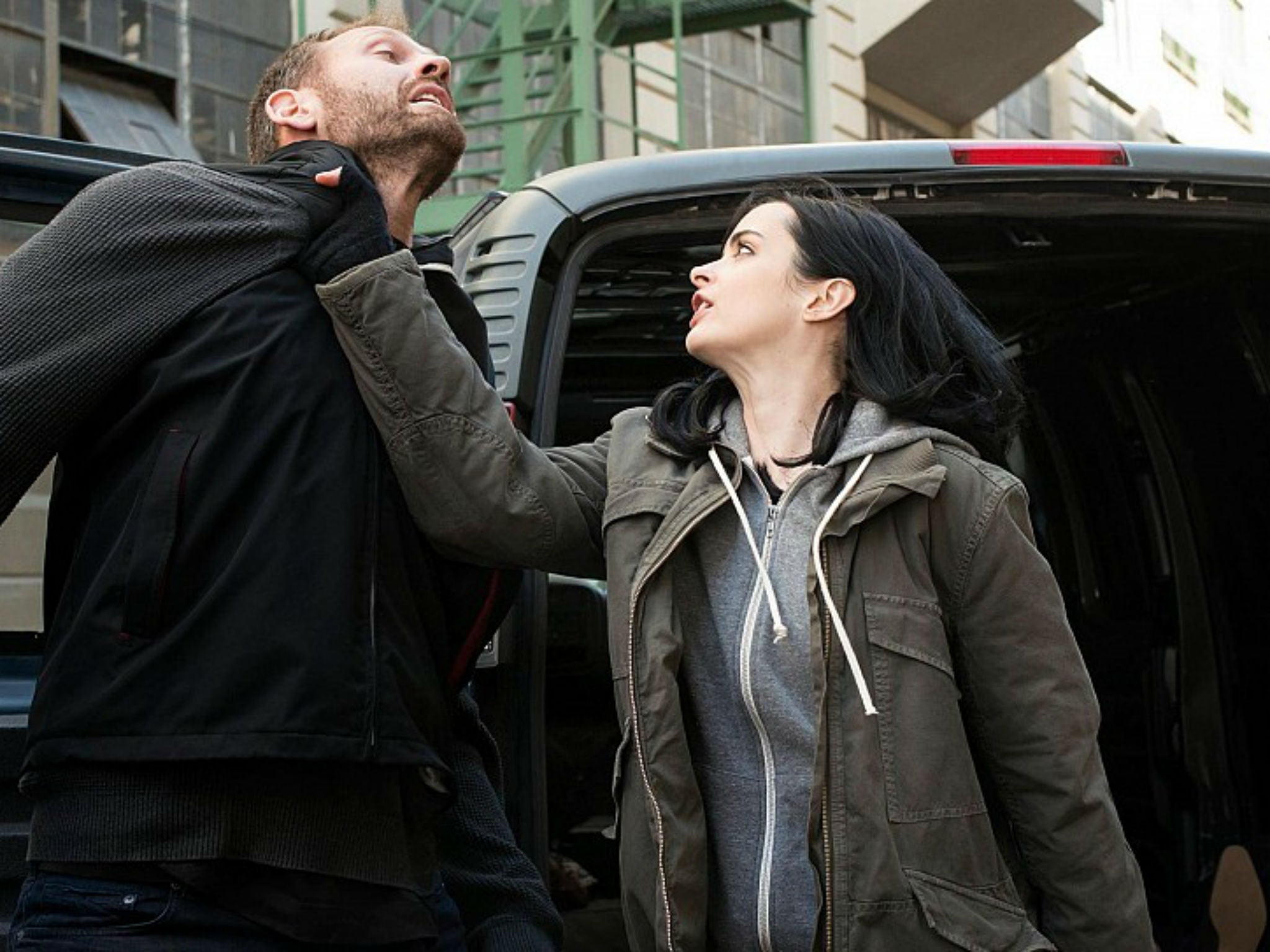In Jessica Jones, superheroes in an abusive relationship brilliantly portray the domestic violence I knew
As they illustrate an abusive relationship between two superheroes, the team behind Jessica Jones build some powerful metaphors - all the while avoiding the stereotypical "strong woman" trope

Your support helps us to tell the story
From reproductive rights to climate change to Big Tech, The Independent is on the ground when the story is developing. Whether it's investigating the financials of Elon Musk's pro-Trump PAC or producing our latest documentary, 'The A Word', which shines a light on the American women fighting for reproductive rights, we know how important it is to parse out the facts from the messaging.
At such a critical moment in US history, we need reporters on the ground. Your donation allows us to keep sending journalists to speak to both sides of the story.
The Independent is trusted by Americans across the entire political spectrum. And unlike many other quality news outlets, we choose not to lock Americans out of our reporting and analysis with paywalls. We believe quality journalism should be available to everyone, paid for by those who can afford it.
Your support makes all the difference.I, like everyone else in my social media networks, spent this week bingeing on the first season of Jessica Jones, following the release of all 13 episodes last Friday. Marvel’s most recent collaboration with Netflix follows the titular Jones, a retired superhero who’s now working as a private investigator in New York’s Hell’s Kitchen.
It’s the first female-led superhero outing for Marvel and, as both a nerd and a feminist, this was reason enough to be excited. Add in the fact that the cast is led by the brilliant Krysten Ritter and my expectations were incredibly high.
What I didn’t expect was that a show that centres round a comic book character with super-strength would also feature the most nuanced, realistic portrayal of partner violence that I’ve ever seen on television. In fact, the entire first season deals with the repercussions of Jones’ relationship with a violent man. I never thought I’d relate so strongly to someone who can lift a car with one hand.
The violent man in question is Kilgrave, played to sinister perfection by David Tennant. Because this is a superhero show, he has the ability to control minds and force people to bend to his will, which is how he kept the physically stronger Jessica in line during their time together. It is a constant struggle for the women he controls to assert their independence from him and, when they do, to convince the world of his crimes.
The metaphor here is obvious. Though abusive men in reality don’t possess psychic abilities, their control over their partners is real and palpable and hard to explain. The inability to escape, even though - as the characters in the show describe - you know in some part of you that this situation is damaging is familiar to countless women, myself included.
Kilgrave’s abuse of women ranges from the seemingly minor - forcing them to smile for him - to the extreme. The show doesn’t shy away from discussing rape, which is rare on any series, let alone one of this genre. Kilgrave’s desire to control Jessica by forcing her to use her immense power to benefit him is analogous to the gradual restriction of a woman’s freedom and a redirection of her energies until she is subservient to her partner. It is horrifying to watch and so, so real.
If the show merely dealt with the realities of being in an abusive relationship, it would still be worthwhile and powerful. However, it goes further, as it tracks Jessica’s subsequent PTSD and attempts to recover. She drinks, she has nightmares but, most importantly, she goes on.
So many depictions of violence against women, particularly sexual violence, end with that character broken beyond recognition. Jessica Jones defies this stereotype as Jessica gradually frees herself from her abuser and begins to live her own life, complete with an enjoyable sexual relationship with another man. She is a survivor, shaped by her experiences but not crushed by them.
Jessica isn’t part of the “strong woman” trope which collapses into stereotype. She’s complex, deeply flawed and drily funny. The roles the women around her play in her recovery also feel authentic, particularly in the case of her closest friend and ally, Trish Walker.
Anyone claiming that gender diversity in entertainment is unnecessary should be silenced by the power of this show. The production team, cast and writers are dominated by female voices and they’ve managed to create something which accurately represents a uniquely female experience. Jones may be a superhero but she’s also a woman who has survived a violent man. Far too many viewers will be able to relate.
Join our commenting forum
Join thought-provoking conversations, follow other Independent readers and see their replies
Comments